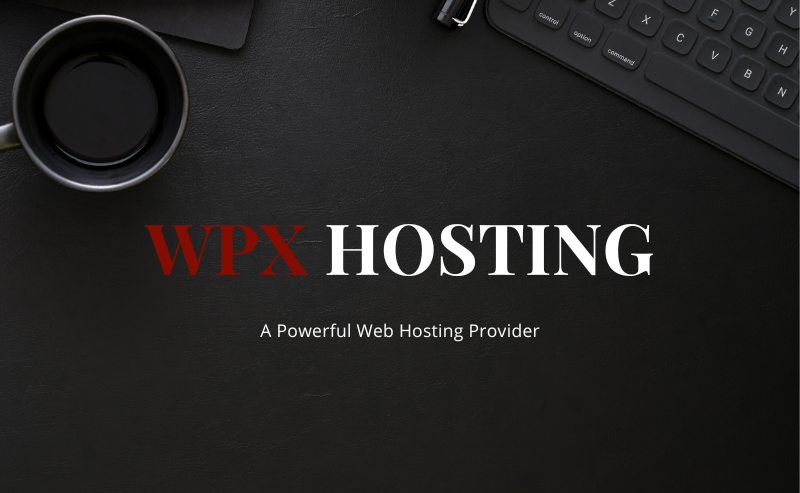When deciding between SitePad and WordPress, it’s crucial to consider their functionality and user experience. If you want a highly customizable website, WordPress is the better option as it provides extensive customization options. It also has a larger user base and a wide range of plugins, making it easier to get support and add new features.
In terms of pricing, there is a difference between SitePad and WordPress. SitePad is often included with hosting packages, while WordPress requires separate hosting. A2 Hosting and Bluehost are worth considering as they offer compatibility with WordPress and reliable services.
For beginners, WordPress may have a steeper learning curve due to its advanced customization options. On the other hand, SitePad is designed to be user-friendly and intuitive, making it ideal for those new to website building.
Ultimately, the choice between SitePad and WordPress depends on your specific needs and expertise. If you value extensive customization and a large plugin ecosystem, go for WordPress. However, if you prefer a simpler and more beginner-friendly experience, SitePad may be the better choice.
What Are The Main Differences Between Sitepad and WordPress in terms of Functionality?
SitePad and WordPress differ in terms of functionality, with SitePad being a user-friendly website builder and WordPress offering a more flexible and customizable platform for building websites. Here are the main differences between the two:
1. Ease of Use:
– SitePad: Offers a drag-and-drop interface, making it easy for beginners to create and modify web pages without coding knowledge.
– WordPress: Requires a learning curve and some technical knowledge, but provides more control and customization options.
2. Customization Options:
– SitePad: Provides limited customization options, with pre-designed templates and themes to choose from.
– WordPress: Offers a wide range of customization options, including the ability to create custom themes and plugins, giving users more control over their websites’ design and functionality.
3. Plugins and Themes:
– SitePad: Offers a limited selection of plugins and themes compared to WordPress.
– WordPress: Has a vast library of plugins and themes, allowing users to enhance their websites with additional functionality and design options.
Overall, SitePad is ideal for beginners or those looking for a simple and easy-to-use website builder, while WordPress is more suitable for experienced users who require advanced customization options and features. Consider Bluehost or A2 Hosting for hosting solutions for both SitePad and WordPress.
How Does The User Experience of Sitepad Compare to WordPress?
SitePad and WordPress are both popular website creation platforms, but they differ in terms of user experience.
SitePad offers a user-friendly and intuitive interface, making it easy for beginners to create and manage their websites. Users can quickly build their site without any coding knowledge by utilizing the drag-and-drop functionality and pre-designed templates.
On the other hand, WordPress is a more robust and customizable platform, offering a wide range of themes and plugins for advanced users to create unique websites. While WordPress may have a steeper learning curve, it provides more flexibility and control over website design and functionality.
When deciding between the two, consider using Bluehost or A2 Hosting, as they offer reliable hosting services for both SitePad and WordPress sites. Ultimately, the choice between SitePad and WordPress depends on your level of expertise and the specific needs of your website.
In terms of Pricing, How Does Sitepad Stack Up Against WordPress?
When comparing pricing, SitePad and WordPress offer different options. SitePad is usually bundled with web hosting plans, so you may need to purchase a hosting package to access it. In contrast, WordPress is a free and open-source CMS that can be installed on any hosting provider.
SitePad offers a user-friendly interface and pre-designed templates, which can simplify the website creation process. However, the pricing for SitePad can vary depending on the hosting provider you choose. It’s important to compare features and pricing from different hosting providers to find the best deal for your needs.
On the other hand, WordPress has a free self-hosted option that doesn’t require any additional costs. However, you may need to pay for a domain name and hosting services separately, which can vary in price. WordPress also offers premium themes and plugins at a cost, but there are many free options available as well.
Ultimately, the cost of using SitePad or WordPress depends on your specific requirements and the hosting provider you choose. It’s recommended to compare pricing and features from different hosting providers to find the best solution for your budget and website needs.
How Is The Learning Curve for Beginners Using Sitepad vs WordPress?
The learning curve for beginners using SitePad vs WordPress varies based on individual preferences and familiarity with website development. SitePad’s drag-and-drop interface makes it easy for beginners to create and customize websites without coding. Beginners can quickly grasp the basics and start building their websites.
WordPress provides more flexibility and customization options but has a steeper learning curve. Beginners may need to invest more time in learning the WordPress dashboard, themes, and plugins to fully utilize its capabilities. Once mastered, WordPress offers a robust platform for creating dynamic and feature-rich websites.
The learning curve ultimately depends on personal preference and the specific requirements of the website. Some beginners may prefer SitePad’s simplicity and ease of use, while others may favor the versatility and extensive resources available with WordPress. Considering factors like desired features, customization needs, and long-term website goals can help determine the best solution for beginners.
Can You Explain The Differences in The Customization Options Between Sitepad and WordPress?
The customization options between SitePad and WordPress differ in several ways. SitePad offers a user-friendly drag-and-drop interface with pre-designed templates, allowing you to easily customize the look and layout of your website. While it provides a simple and intuitive experience, the level of customization may be limited compared to WordPress.
On the other hand, WordPress is renowned for its extensive customization options. It offers thousands of themes and plugins, giving you the flexibility to create a unique website tailored to your specific needs. With WordPress, you have the ability to customize every aspect of your site, from design to functionality, and even the underlying code. This provides you with greater control and the ability to create a truly personalized website.
It’s worth noting that SitePad is often bundled with web hosting providers like Bluehost or A2 Hosting, making it a convenient solution for beginners or those looking for a straightforward website builder. However, if you prioritize extensive customization capabilities and desire more control over your website, WordPress might be the better choice. Ultimately, the decision between SitePad and WordPress depends on your specific requirements and level of expertise.
SitePad vs WordPress: Which Platform Is the Right Choice for Your Website Building Needs?
In conclusion, when it comes to ‘SitePad vs WordPress’, the decision largely boils down to what you value most in a website building platform. SitePad caters to users who desire ease of use and simplicity with its drag-and-drop interface and pre-designed templates, making it a great choice for beginners who want to get their site up and running quickly without much technical hassle. On the other hand, WordPress stands out for its expansive customization options, a vast ecosystem of themes and plugins, and the ability to create a highly unique and powerful website, albeit at the expense of a steeper learning curve.
Each platform has its merits and can be the right choice depending on your specific needs and technical proficiency. Whether you opt for the straightforward approach offered by SitePad or the more complex but robust options available with WordPress, both can be hosted on reliable services such as Bluehost or A2 Hosting. Ultimately, ‘SitePad vs WordPress’ isn’t about finding a one-size-fits-all solution, but rather choosing the platform that aligns best with your web development goals and skill level.

